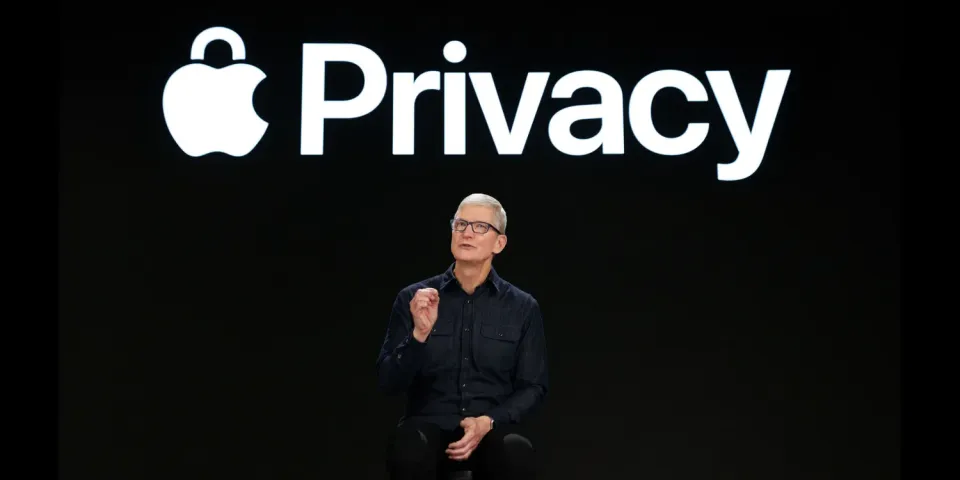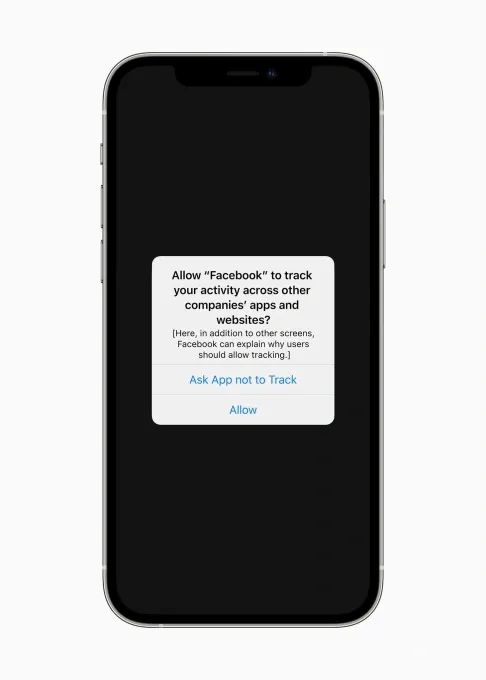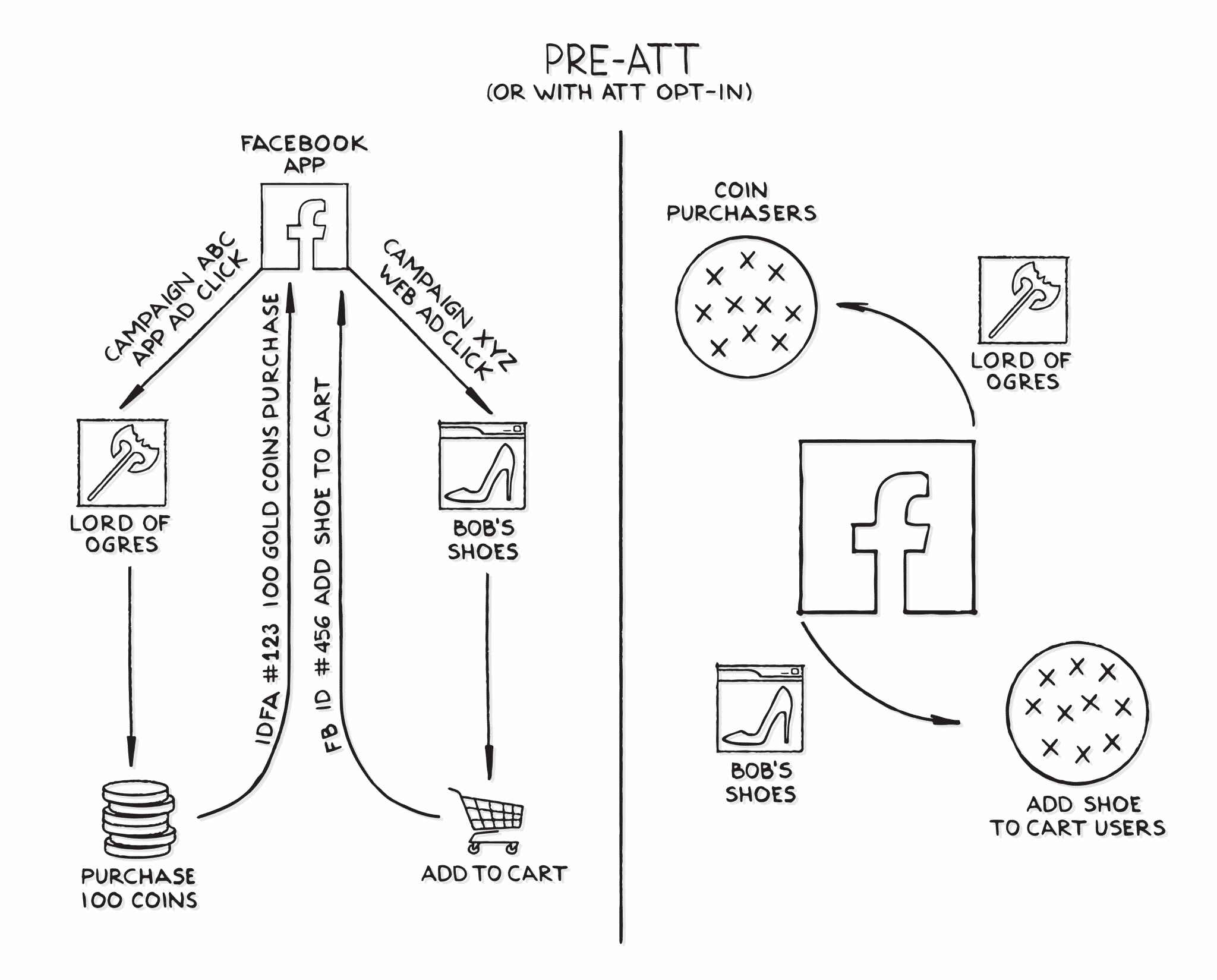Revisiting Apple's app tracking transparency (ATT) efforts

What is Apple's app tracking transparency?
Apple's App Tracking Transparency is a privacy feature introduced in iOS 14.5 and later versions of Apple's mobile operating system. It requires app developers to obtain explicit user consent before tracking their activity across other apps and websites for advertising or data collection purposes. At the end of 2021, it has pretty much rolled to most of the iPhone users, and since then, Android phone also has the tendency to implement the same approach.
Previously, many apps would collect data on users' behavior and preferences without their explicit consent, which could then be used for targeted advertising or sold to third-party data brokers. With App Tracking Transparency, users now have the option to either allow or block this kind of tracking.
When a user downloads or updates an app that tracks their activity across other apps and websites, the app must display a prompt asking for permission to track. The user can then choose to either allow or block tracking for that app. If they choose to block tracking, the app will not be able to access the user's Identifier for Advertisers (IDFA), which is a unique identifier assigned to each Apple device for advertising purposes.

App Tracking Transparency is part of Apple's broader efforts to improve user privacy and control over their data. By giving users more control over their personal information, Apple aims to make the app ecosystem more transparent and trustworthy for users.
How it is actually work?
Pre-ATT, here is how it works?
- When people see the ads from Facebook or Instagram, and then they went to merchant to finish up the purchase, merchant will send these info to Facebook, so Facebook can charge them also know the effectivness of these ads.
- There's another way to do it! Poor app customization: Previously, mobile measurement partners (MMPs) were able to collect, organize and attribute app data in a uniform view to give advertisers an in-depth analysis of campaign performance. This data includes views, clicks, navigation patterns, session duration and installs, giving advertisers insight into users’ behavior. With the new ATT update, MMPs can’t pull data from apps, leaving advertisers in the dark about customizing apps based on user preferences.

Post-ATT, what changed?
On apple device, there's a unique UUID named advertisingIdentifier which uniquely identifies an apple device. Apple legitimately allows app developers to use it for frequency capping, attribution, conversion events, estimating the number of unique users, advertising fraud detection, and debugging. However, per Apple official document, on devices running iOS 14.5 and later and iPadOS 14.5 and later, your app must request tracking authorization before it can get the advertising identifier.
Technically, after iOS14.5, only the user authorized the app to track, when the app calls the App Tracking Transparency APIs, developers would receive this UUID. Otherwise, in other situation, you would just receive all zeros (00000000-0000-0000-0000-000000000000).
This thing sits like a bridging key in between apps to identify a user to enable many ads displaying scenarios; otherwise, without user login, or sharing app specific particular login data, the app or website wouldn't allow these kind of retargeting ads experience happening.
Here, we have to mention this mid-layer sitting in between now – the app tracking transparency framework. Its usage is defined by:
You must use the AppTrackingTransparency framework if your app collects data about end users and shares it with other companies for purposes of tracking across apps and web sites.
Besides the above changes on the technical perspective, here're the impacts on the business side for the whole ads eco-system:
- Loss of targeting capabilities: App transparency tracking can limit the ability of advertisers to target specific audiences based on their behavior, interests, and demographics. When users are given more control over their data and how it is used, they may be less likely to allow apps to track them, which can make it harder for advertisers to reach the right people with their ads. As a result, advertisers may be less willing to spend money on ads that are not reaching their intended audience.
- Decrease in ad effectiveness: When users are aware of how their data is being used, they may be less likely to engage with ads that they perceive as invasive or irrelevant. This can decrease the effectiveness of ads and lead to lower engagement rates and conversions.
- Increase in ad-blocking: When users feel that their privacy is being violated by app tracking, they may be more likely to use ad-blocking software to prevent ads from appearing on their devices. This can further decrease the reach and effectiveness of ads and limit the revenue potential for advertisers.
- Increase in costs: With fewer targeting capabilities and decreased ad effectiveness, advertisers may need to spend more money on ads to achieve the same level of results. This can make advertising less cost-effective and decrease the overall demand for ads.
How substantial it is?
Per Ben Thompson from Stratechery, he would attributes this enforce of ATT being part of the reason of this tech local recession
We know since the spring of 2022, though we have been told many times that there's a recession coming, but broad economy had been doing alright; in contrast, we just have this tech local recession. Many people attribute it to Covid hangover, or higher interest rate, but there's a fact that cannot be omitted completely, the long tail impact of the app transparency tracking.
First, business gradually realized the tradition ads model is becoming more and more ineffective, so they would buy less ads at ads platform like Facebook or Google. On all these ads platform, except some big accounts, the SMB portion is shrinking. And eventually all of these means less spending on cloud infra. This together with the Covid tech hangover resulted in an overall tech local recession.
Is it always a good thing?
In my experience, the only reason I bought products from certain boutique brands are from the ads on social network, the conversation of these brands are never easy. Take this brand as an example, Thursday's boots. I initially spotted their ads on Facebook, and amazed by their designs; however, you would never make your minds right away – it took several rounds of re-targeting before my first purchase happened. After that, as I am quite satisfied, it becomes my go-to men's boots brands. I couldn't imagine if it's not because of social network, or even retargeting, how I could know this remote brand in Texas and make my mind for someone like me?
Don't get me wrong, I am totally for the increase of the data privacy practices, but don't completely ignore that great products with right ads do provide values to consumers, which is one of the arguments from TikTok in this week's congress hearing.
Conclusions
In general, we're still too early to see the long term impact of these ATT practices. Especially if Android platform also does some restrictions like this. Though, there were a couple of attempts to bypass these regulation, seems like Apple has been pretty firm that this is the practices they're holding the line really tightly. I think there're several angels that we can keep watching on: 1) Apple platform's strict control on Apple store, and whether this could be forced to loose a little bit when policy maker presses more on the "monopoly" practices of Apple. 2) With the recent LLM evolution, whether a new platform is at the horizon and the whole ads model in the mobile Internet era could be completely disrupted.
References
[2] https://stratechery.com/2023/the-four-horsemen-of-the-tech-recession/
